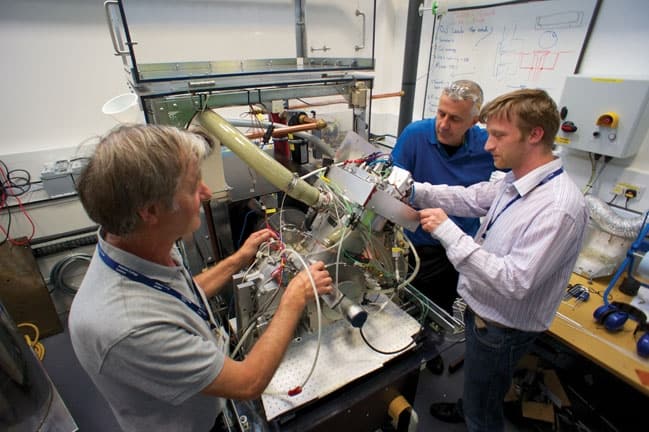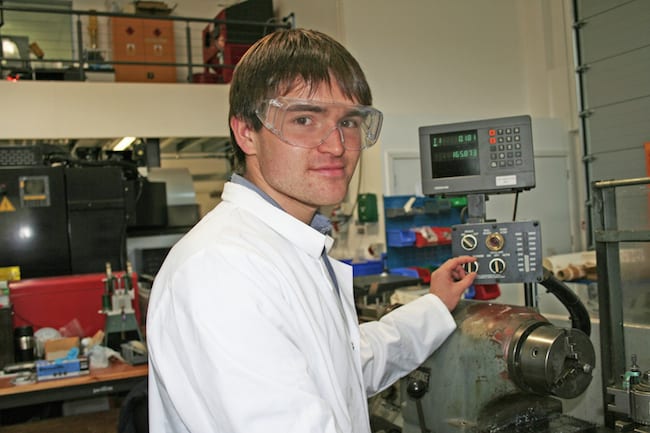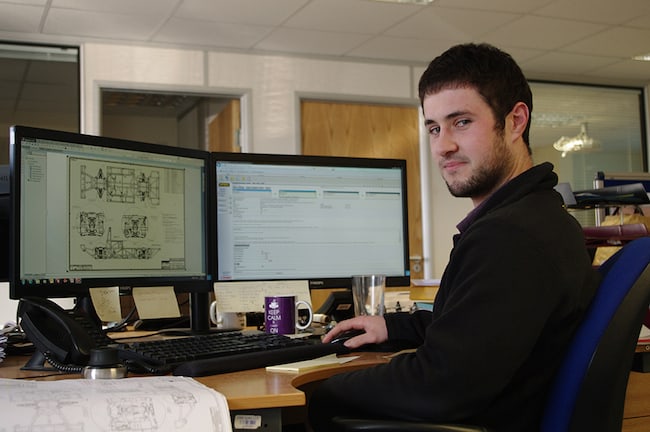
It’s one of the biggest decisions you can make when starting your engineering career: do you want to join a big corporate company with hundreds of other graduates or a small firm where you might be one of just a handful of engineers?
The likes of BAE Systems and Jaguar Land Rover offer a lot that small firms usually can’t, including extensive graduate training schemes where you move around the company, state-of-the-art facilities, a top starting salary and a chance to work on some of the biggest engineering projects going.
But working for an SME can in some ways put you closer to the engineering itself. You’re not a small cog in an admittedly exciting machine: you’re thrown straight into being a vital part of the company’s operation.
Larger firms think more about the big picture of integrating components to create a system that fulfils the design brief, working for years or even decades to solve the main problem.
SMEs, on the other hand, are often found in the supply chain, tackling the gritty, technical engineering challenges. They might help design and manufacture a new product in a matter of months before moving on to the next one. There are also a lot more of them – you’re more likely to be able to find one where you want to live, rather than having to move to a new place.
Equally, small firms, especially startups and university spinouts, are often the ones where the most innovative ideas are to be found. Gone are the days when industrial conglomerates funnelled huge money into massive R&D labs: now there’s a lot more reliance on spotting what other people are doing and bringing exciting new companies on board.
The Student Engineer spoke to two recent graduates working at engineering SMEs to find out why thinking small can be so rewarding.

Rupert Barton is a mechanical engineer at product consultancy Cambridge Design Partnership, which employs around 60 people. He helps develop ways of testing the wide variety devices that the company works on, from inhalers to paint delivery systems.
“What I like is the variety of projects on the go. Even though I’ve only been working on one project in the few months since I started, there’s such a big variety that I anticipate pretty soon I’ll have worked on a really good range of different things.
“The other thing that’s really nice is that on the project I’ve been working on there have only been three or four of us on it at any one time, which means there’s quite a lot of responsibility and I’ve been given quite a lot of freedom about how I go about designing the tests.
“You can go as far as the knowledge you have so it’s good for stretching you, and then once you hit a problem you can speak to someone more experienced to help you out but there’s no limits on what’s expected of you.
“It’s really nice to work at all stages of a project. I’ve been involved in selling new projects and end-of-phase meetings of old ones. You can work on a project right from the very beginning and see it all the way through, something you wouldn’t necessarily be able to do at a bigger company.
“It’s great to be able to propose what you’re going to do and then do it and then tell the client what the outcome was.”

Glen Ebsary is a graduate design engineer at niche vehicle manufacturer Supacat, which has around 120 employees. His role is to redesign parts for the company’s existing vehicles and help develop new ones.
“I wasn’t specifically looking for smaller company but now I’m here I feel like I’ve gotten more involved [than I would have at a large firm]. The nature of the business is that we prototype and turn things around quite quickly. Maybe if I was in a bigger company I wouldn’t see as much, I’d be focusing more on one part of something rather than different bits of the whole vehicle.
“Because I’m a design engineer, most of my time spent at a desk on a computer but because there are workshops in the area if need to go and look at how a part fits on the vehicle I can go and see it. That’s really useful because it gives me a better idea of what else is on the vehicle I need to consider and how it fits and that sort of thing.
“When you’re working for a smaller company you get more involved and have more responsibility. I feel as well like I’m more a part of a team, you’re not just a small fish in a big pond.
“I considered bigger companies as well but I wasn’t keen on moving and most of the companies I was looking at were in the West Midlands. I wanted to be in the South West where my family’s from.
“I turned down another job because I wanted to be in this area, but they were offering me more money. I think smaller companies can’t quite offer the same sort of salaries the bigger ones can. But I think I’ve probably got more out of this and progressed further than I would have in a big company already.”




Glasgow trial explores AR cues for autonomous road safety
They've ploughed into a few vulnerable road users in the past. Making that less likely will make it spectacularly easy to stop the traffic for...